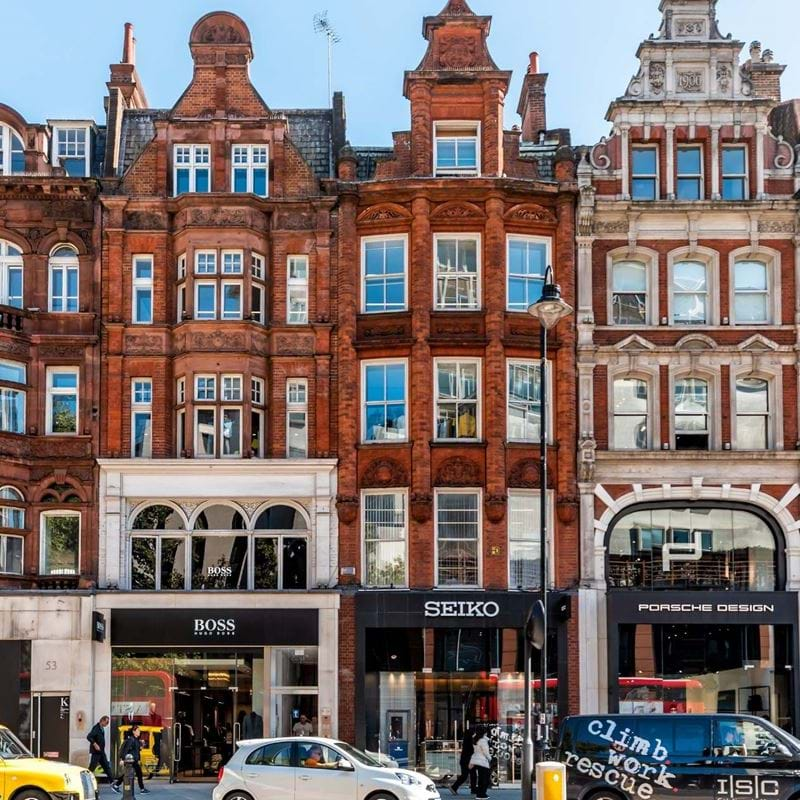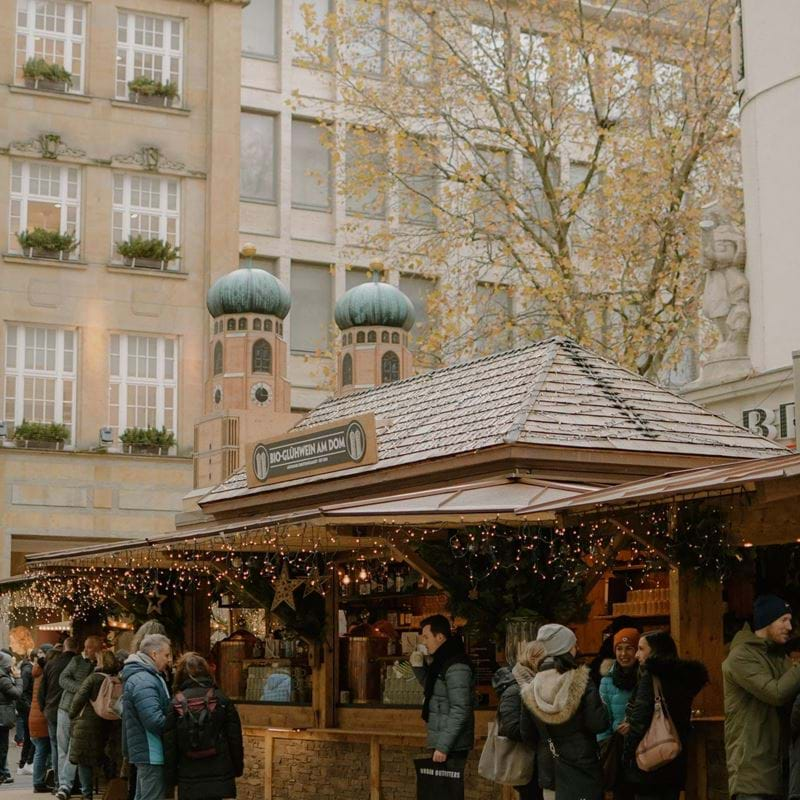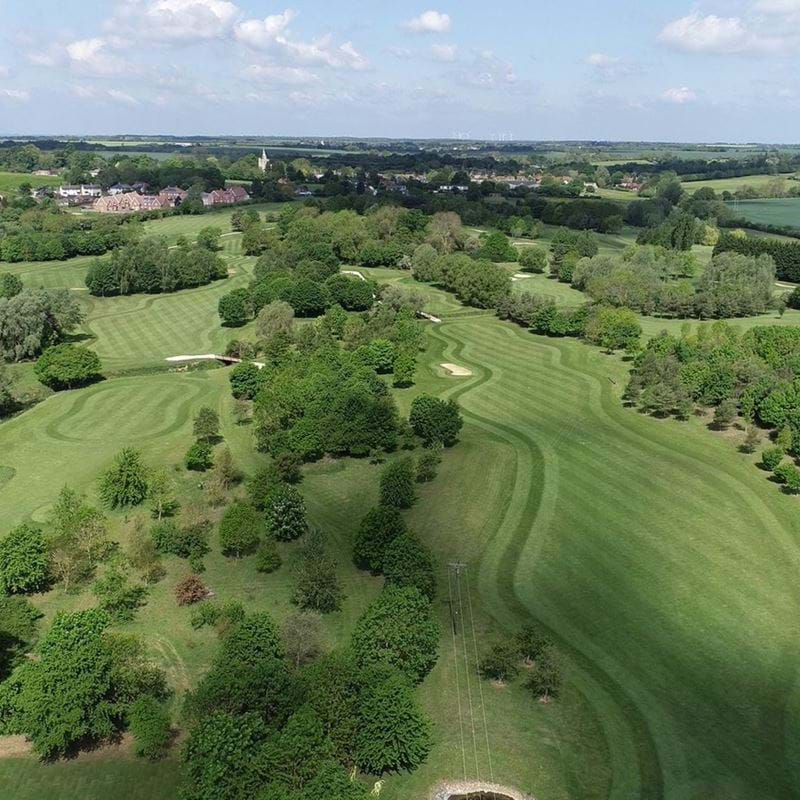At many of our properties, including Eden Locke in central Edinburgh, bees buzz in rooftop hives, producing signature honey. Urban farms create produce for our eateries with landscaping designed for various birds and wildlife to inhabit, redefining our relationship between nature and the city.
Eden Locke, Edinburgh.
Perched atop the roof of Eden Locke, overlooking Edinburgh's skyline, are four bustling hives that house our very own Eden Locke bees. Since their installation in 2019, these bees have been working hard on our signature Eden Locke Blossom Honey, available for purchase at our Locke Shop on the property.
Recently, we had the pleasure of catching up with Webster Honey, the dedicated team that care for our bees and harvest their sweet honey. Founded by Daniel Webster and Emily-Kate McDonnell in 2016, Webster Honey began with just two beehives in Kinross. Meik, the head beekeeper, shared valuable insights into the world of our Eden Locke bees, their honey harvesting process, and the crucial role bees play in maintaining our delicate ecosystem.
Can you tell us about the process of harvesting honey from the hive?
The honey harvest is quite time-consuming, especially at the Eden Locke hives. We open the hive and use a little smoke to calm the bees. From there, we brush them with a "beebrush" to get them off the frames and place them in a smaller hive. Each box we call "super" contains 10 frames. Some hives have 2 or 3 of them. Depending on the time of year and if there is more to forage, we place new supers with frames onto the hive, so the bees can fill them again.
Then we rope them down and bring them to the van. Each box can weigh 20-25 kg or more. Back at the unit, we uncap the frames and spin the honey out using a machine called the extractor. The honey runs through two filters and then into buckets to settle for at least 24 hours. After that, the honey can be jarred. Nothing is added or heat treated, so it's raw honey with all the benefits.
Is there anything particularly interesting about our Eden Locke bees and hives?
They have always done very well, and I don't know what it is, but during the summer the hives have got a distinct smell and the honey tastes totally different from others with a lovely aftertaste.
-(1).jpeg?width=1018&format=jpeg&quality=80)
What challenges do beekeepers face, especially in urban environments?
The challenges we face are mainly the weather. Also pesticides, but rooftop hives generally do better than the ones in the countryside due to the food source being closer, less or no pesticide and fewer predators. Due to the smaller number of hives, the risk of diseases is lower. The challenges I face in our urban hives is sometimes access. It just takes everything a bit longer than parking the van next to the hives for the equipment needed.
Can you explain the importance of bees to our ecosystem?
The short answer is, if there are no bees, there won't be any of us. If the bees all died today, it would be around 2 years and we would vanish too. Bees are not only pollinators of our crops but, more importantly, our source of fresh air, outside trees. In China there are people pollinating trees by hand due to the shortage of bees.
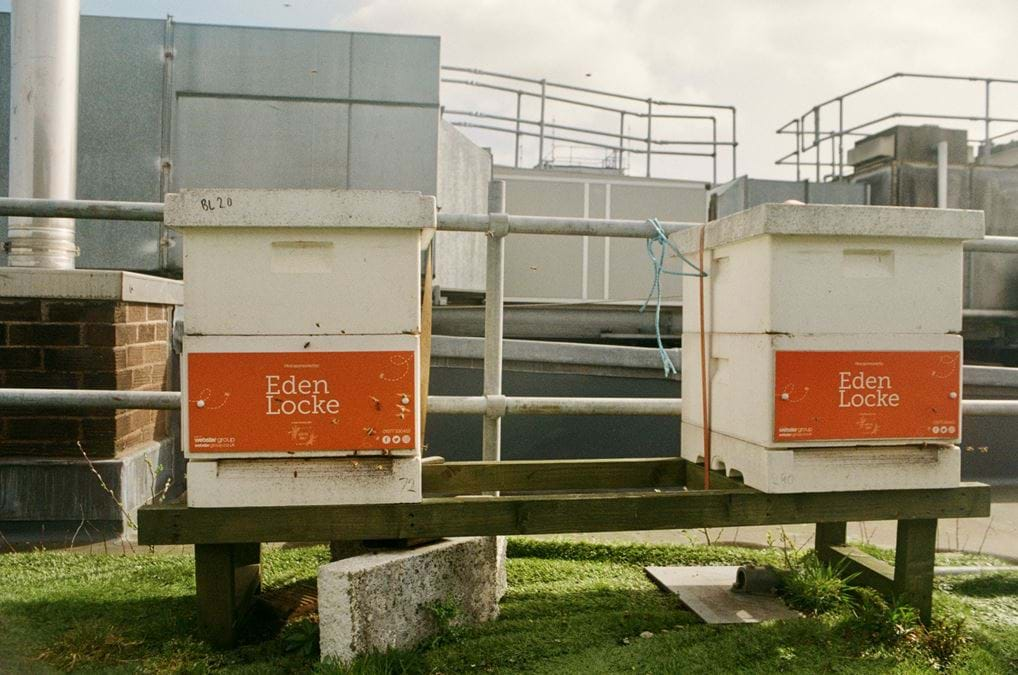
What are some interesting facts about bees that most people might not know?
Fun facts, gosh there are so many. The males (drones) don't have a stinger. The females (worker bees) live about 5–6 weeks in the summer, but the winter bees will survive a few months. The drones can live 5–6 months but get chucked out by the worker bees in late autumn. The queen bee will reach an age of about 5 years and lays 2000–2500 eggs a day. An average hive can produce 20-25 kg + of surplus honey (we had some hives one year which produced over 70kg each).
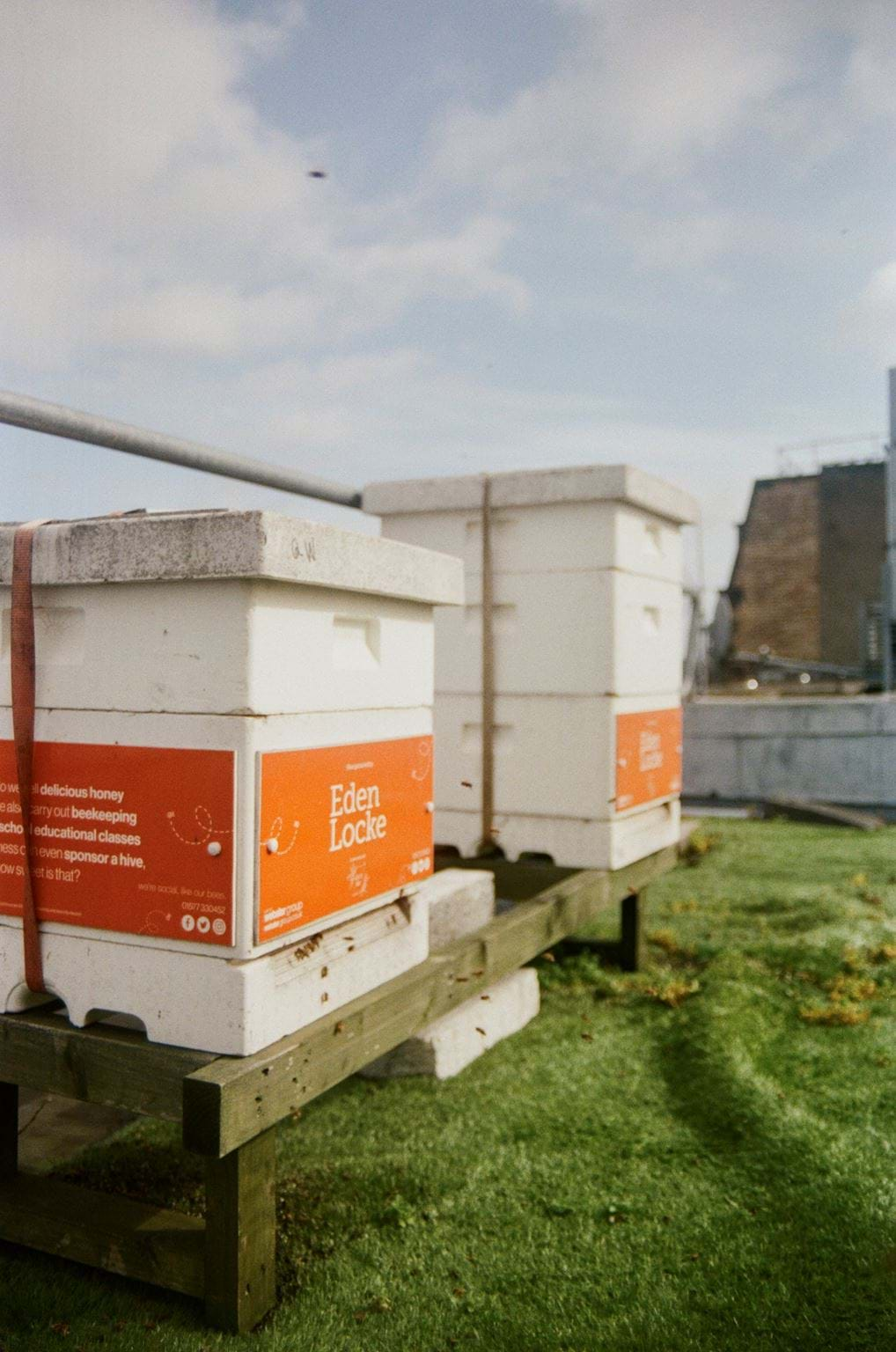
From Munich to Cambridge, here are a few of our other properties championing sustainable practices:
Schwan Locke, Munich.
Much like Eden Locke, Schwan Locke is another of our Locke properties with rooftop beehives, producing Locke honey.
WunderLocke, Munich.
On the 7th floor of WunderLocke is our very own urban allotment. Amidst the city skyline we cultivate a diverse array of herbs and plants used in dishes at our on-site restaurant, Mural Farmhouse. Our urban allotment provides fresh and sustainably-sourced ingredients that elevate your culinary experience. We champion urban agriculture and the connection between gastronomy and community.
.jpg?width=1018&format=jpeg&quality=80)
Ludwig Suite, Schwan Locke. Prices from €179,44 per night.
.jpg?width=1018&format=jpeg&quality=80)
Wunderlocke, Sendling. Prices from €99,07 per night.
Turing Locke, Cambridge.
In the tranquil courtyard of Turing Locke, you'll discover more than just a serene space. Amidst the lush trees and flowers, we've created a haven for wildlife with bird feeders and sheltered areas.

Prices from £132.92 per night.
Enjoy 10% off your next break.
Thinking of escaping the hustle and bustle? Enjoy the full experience at all of our sustainably-led properties this Earth Day. Sign up to our Locke Community and rest easy with complimentary early check-in and late check-out, and 10% off every booking, no matter how long you stay.


.jpg?width=900&height=900&mode=crop&format=jpeg&quality=80)


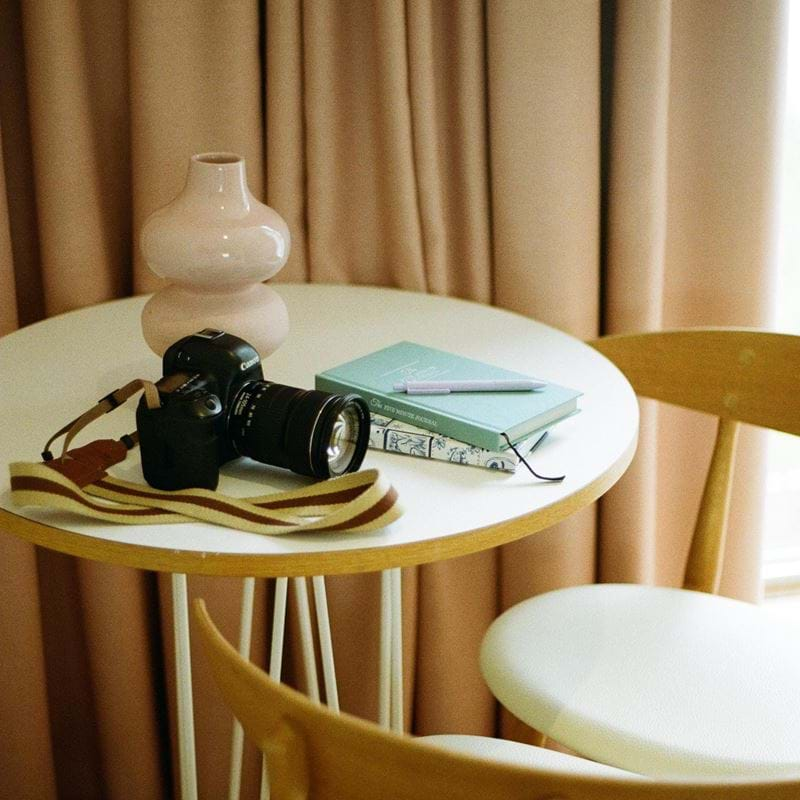
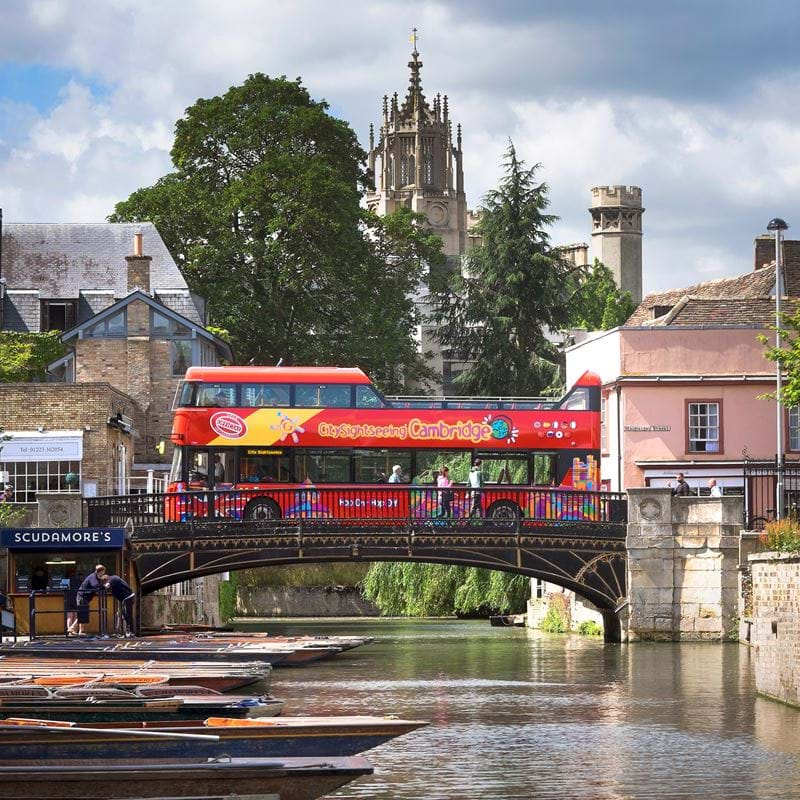

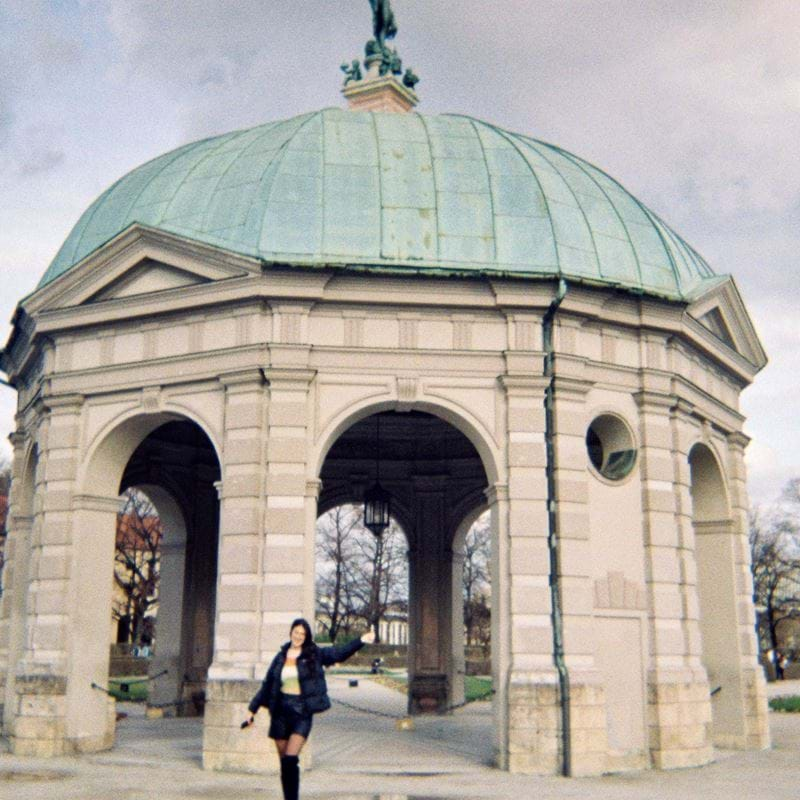
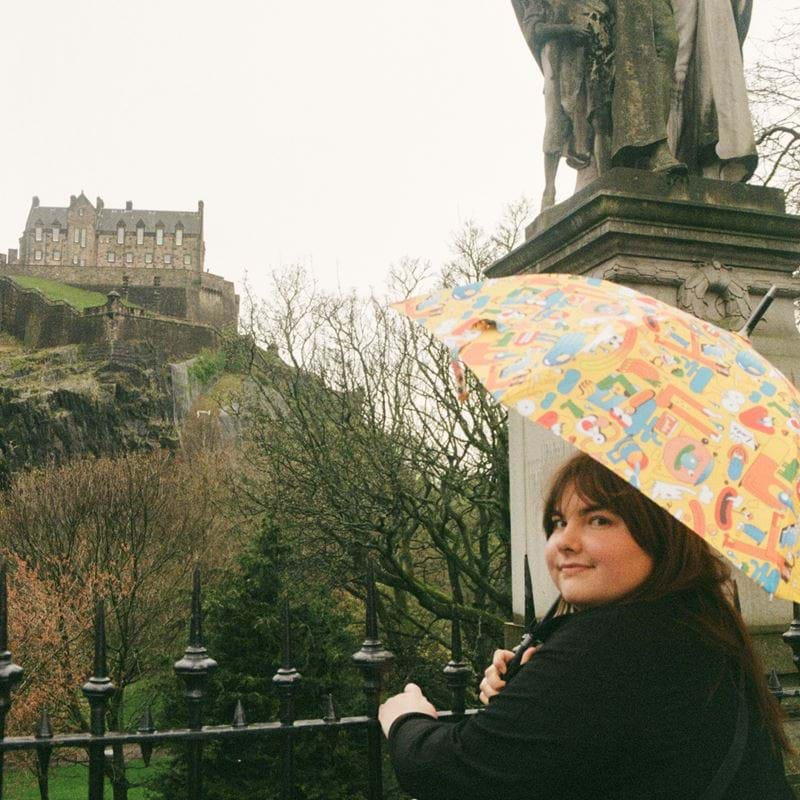
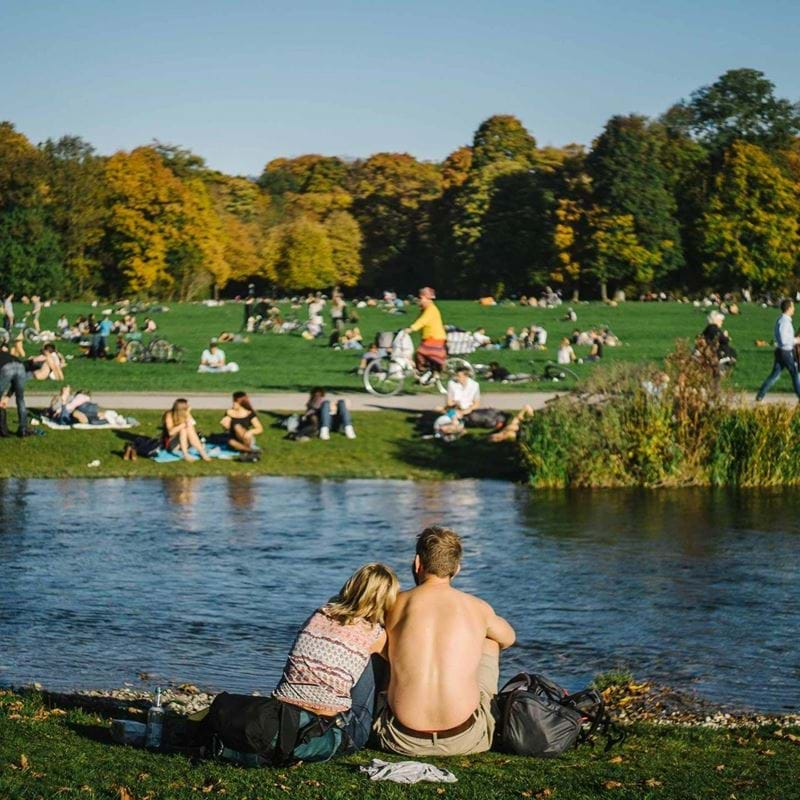
.jpg?width=800&height=800&mode=crop&format=jpeg&quality=80)
